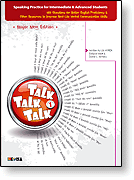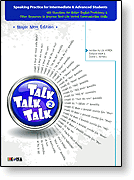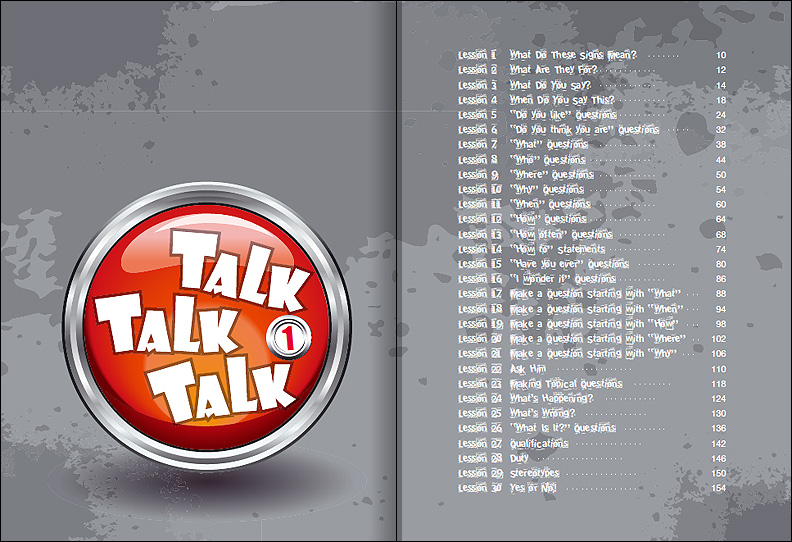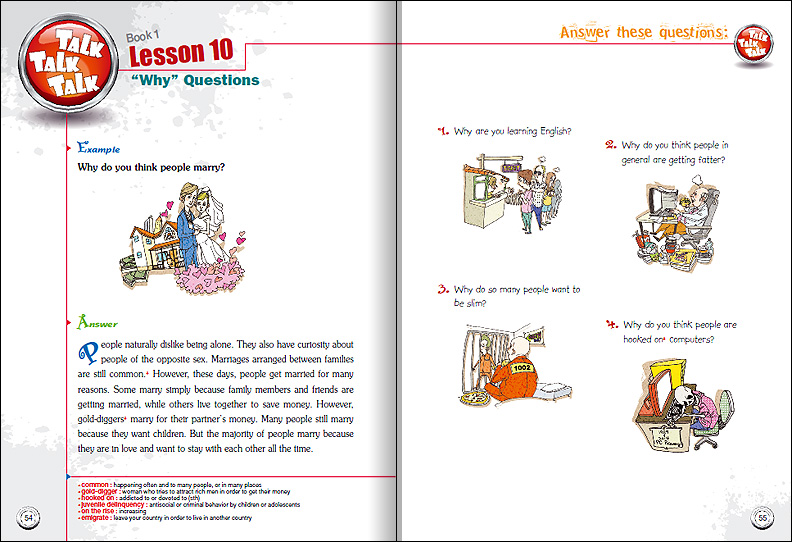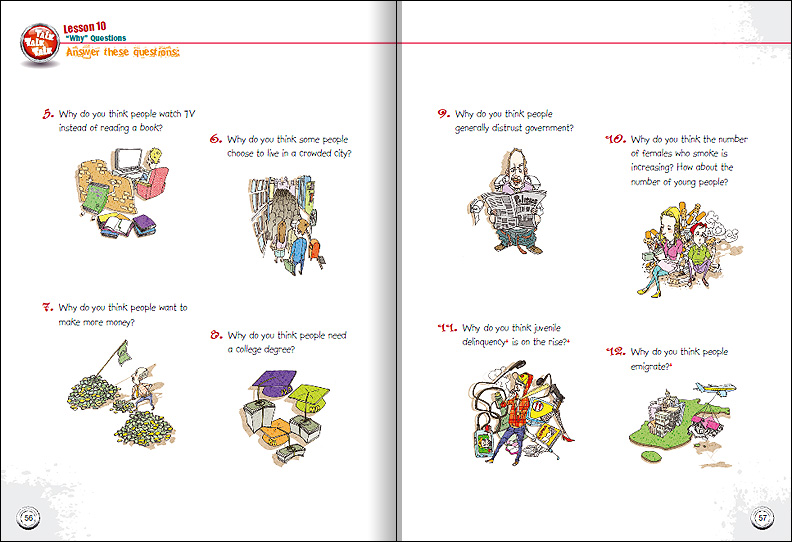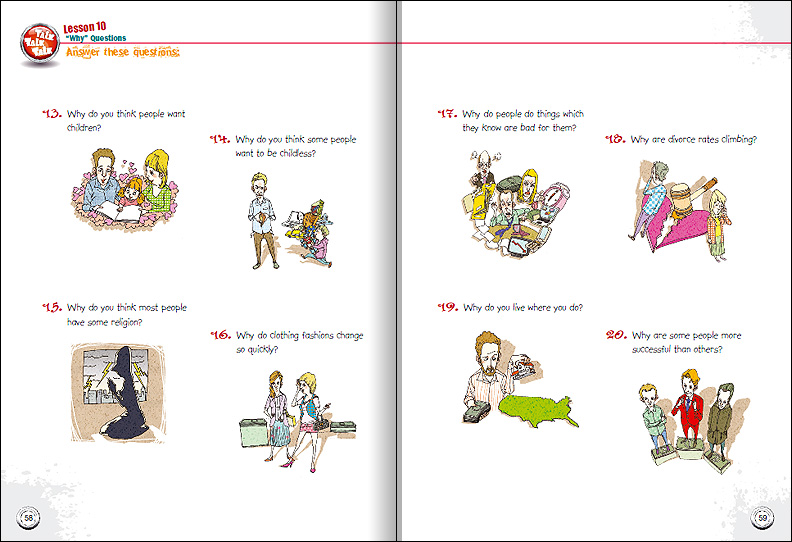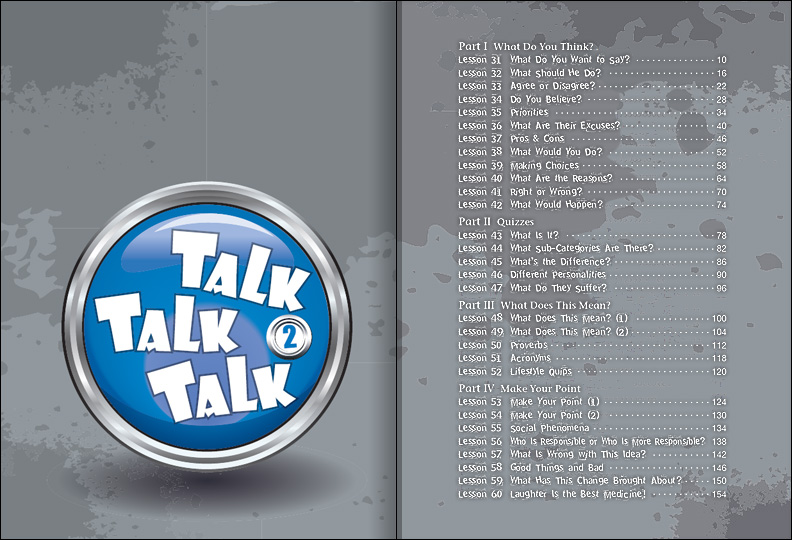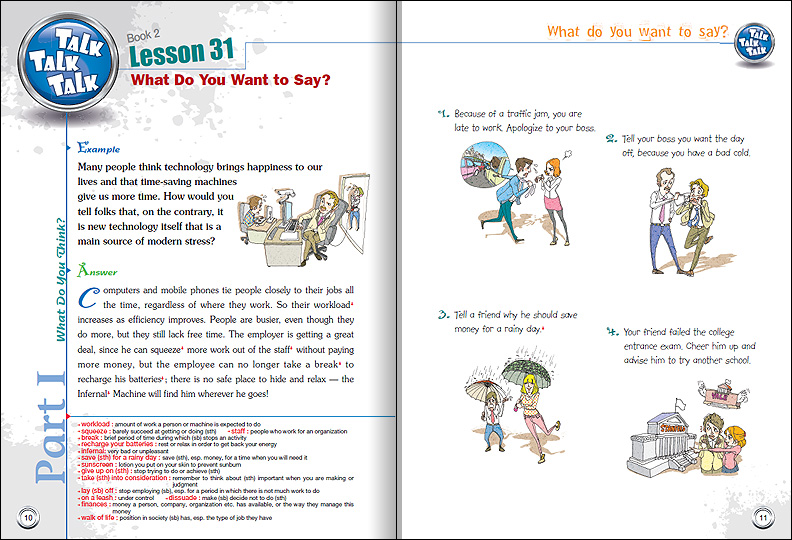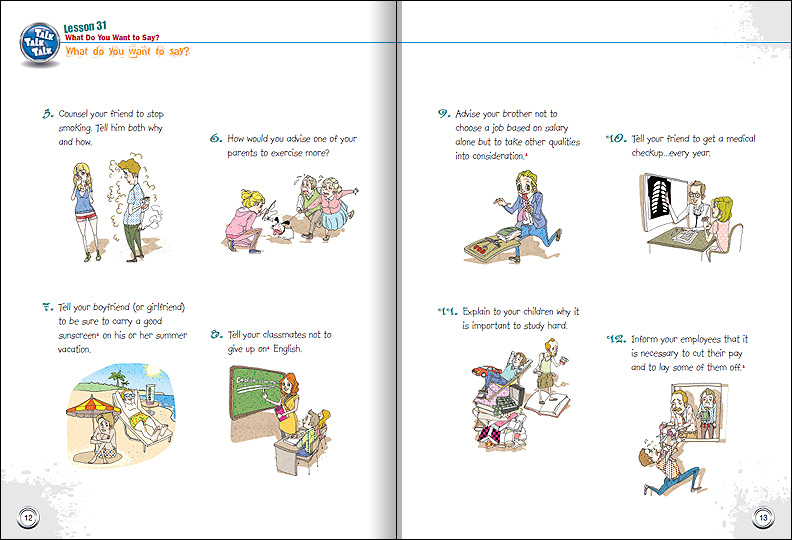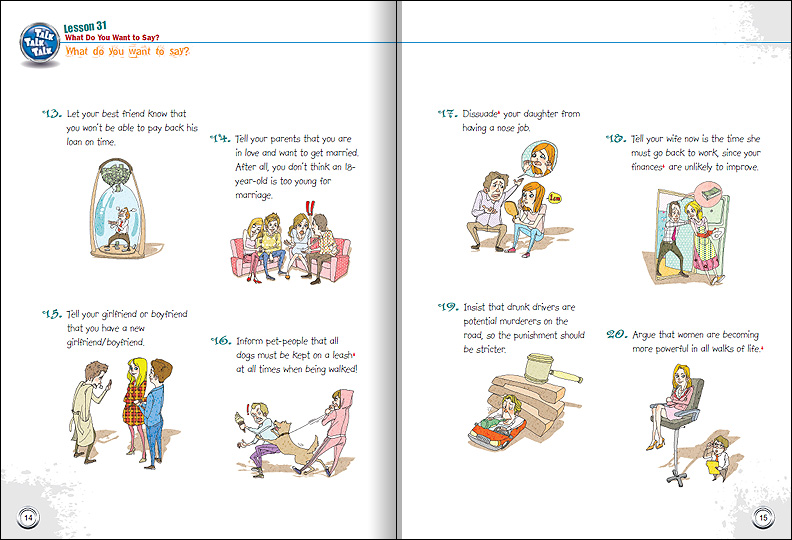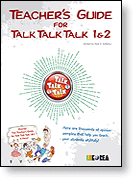 |
These books include 60 lessons that provide intermediate and advanced students with the opportunity to practice some of the most common types of questions and discussions that English speakers engage in. In the early lessons, students answer a variety of questions, including wh-questions, but later the structure of the lessons forces them to generate their own questions. A wide range of functions are covered in these books, including the following: stating excuses, identifying priorities, providing reasons, agreeing and disagreeing, explaining differences, describing qualifications, talking about stereotypes, explaining proverbs, arguing for certain positions, and many more. These books provide a firm foundation for students who want to participate in spirited discussions. A teacher’s guide is available for this series. |
 |






